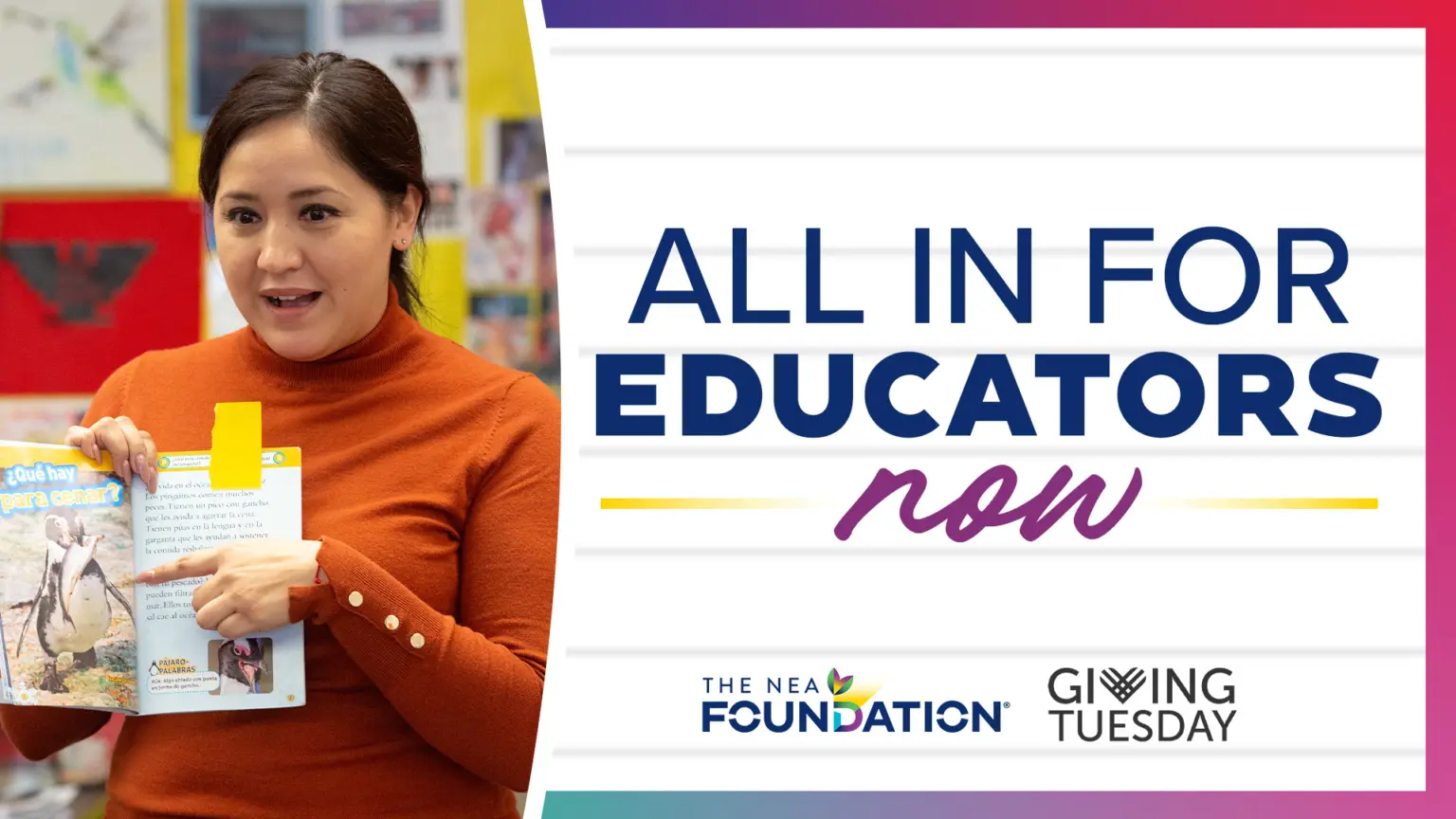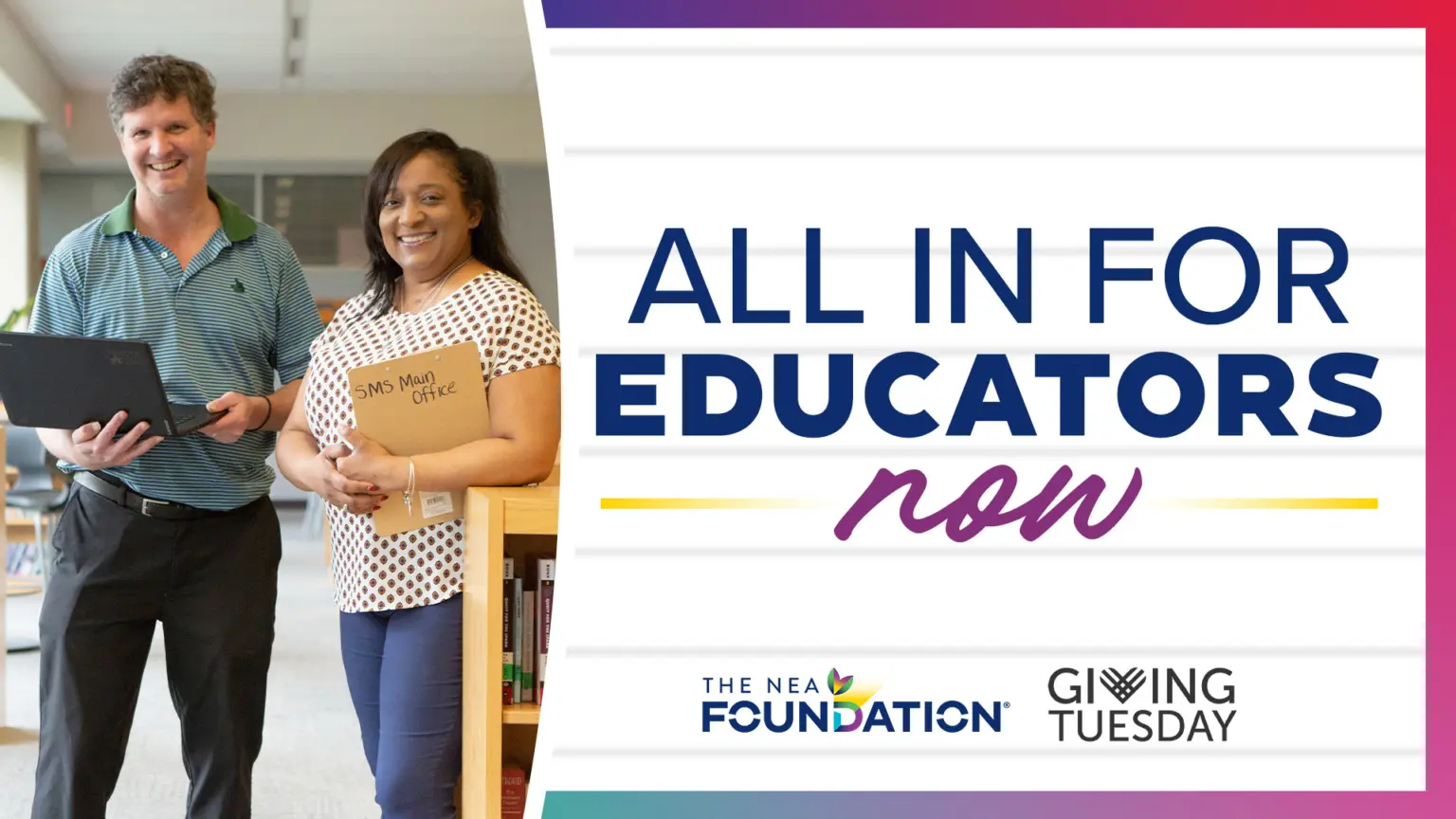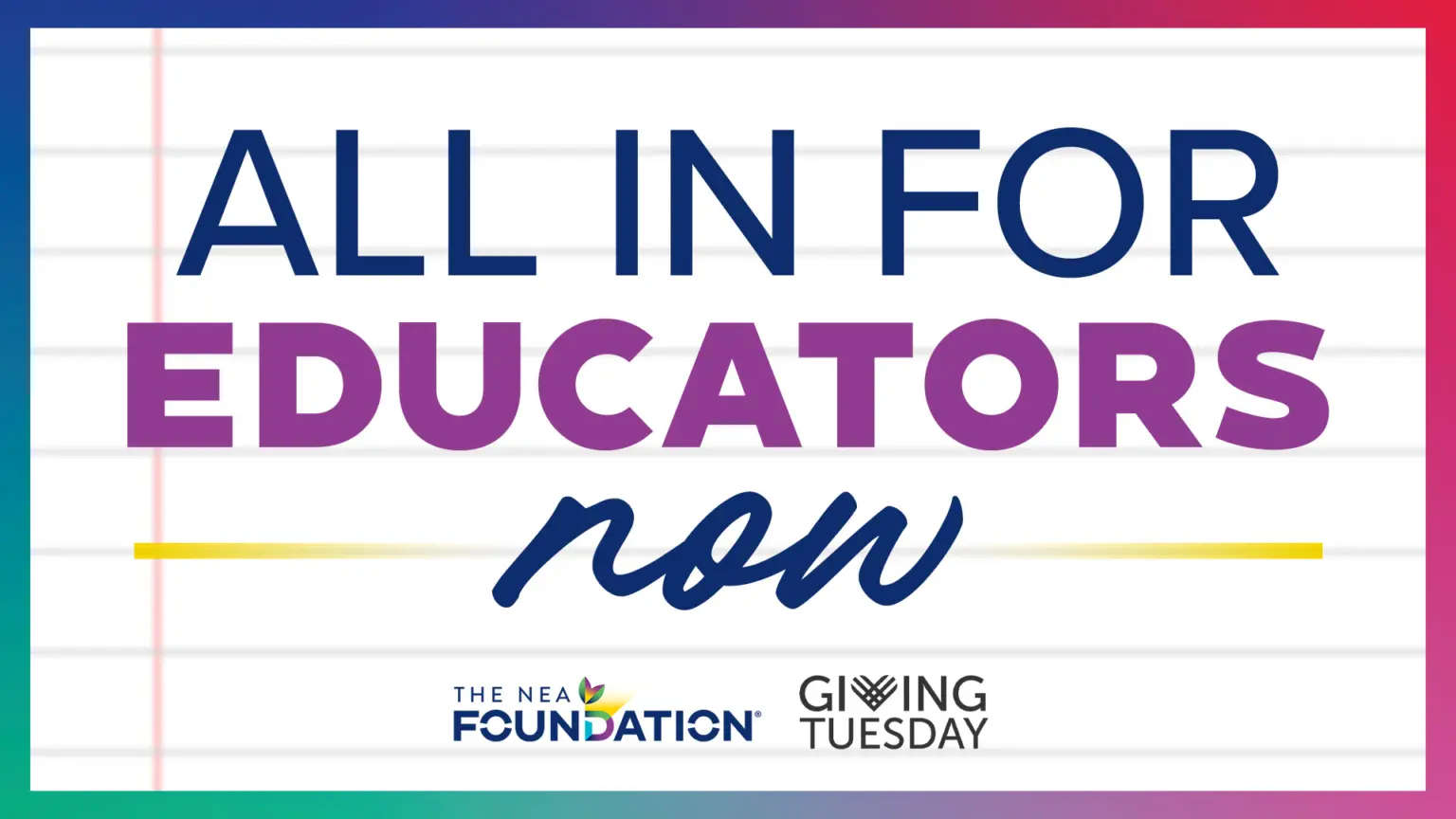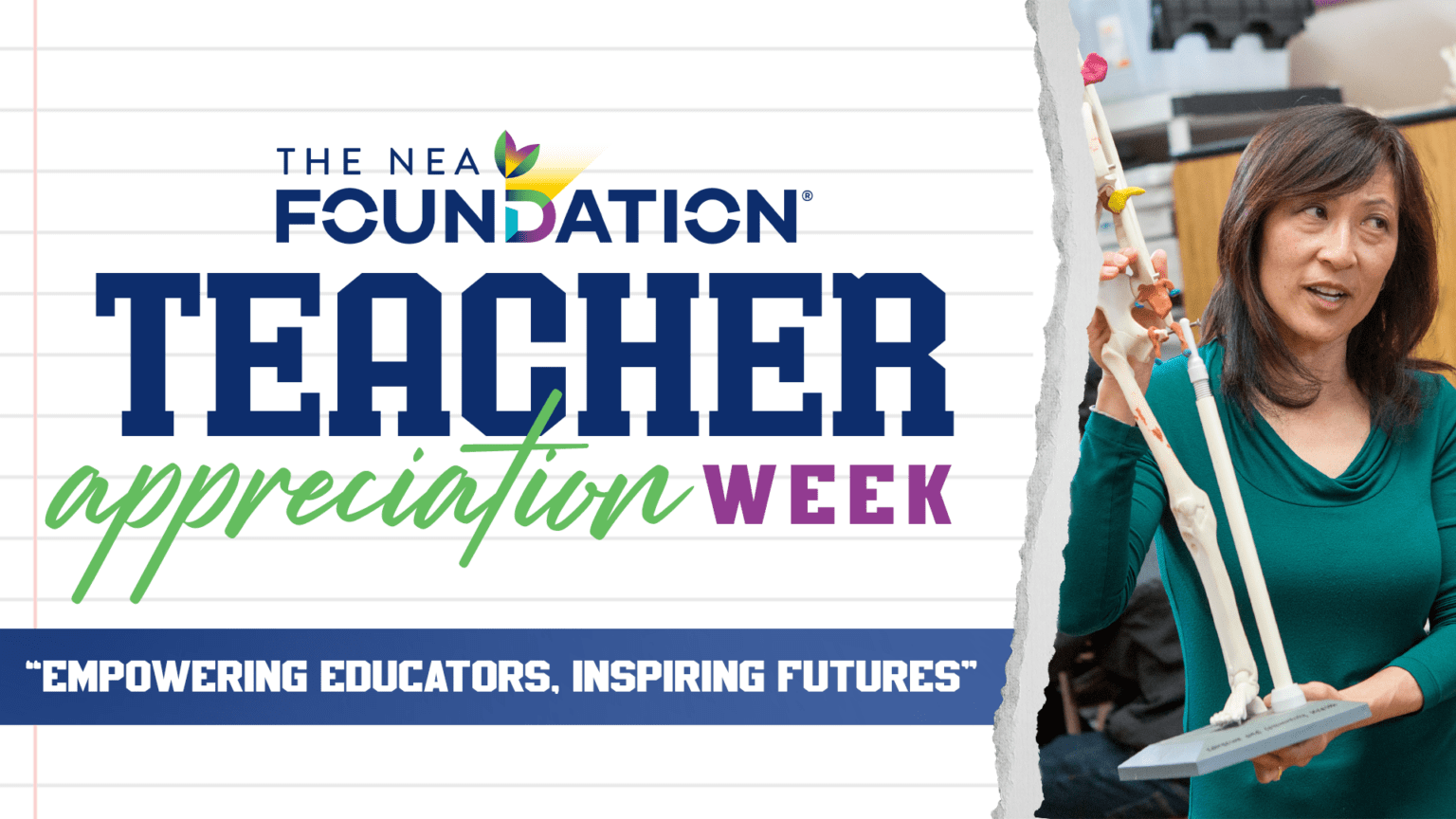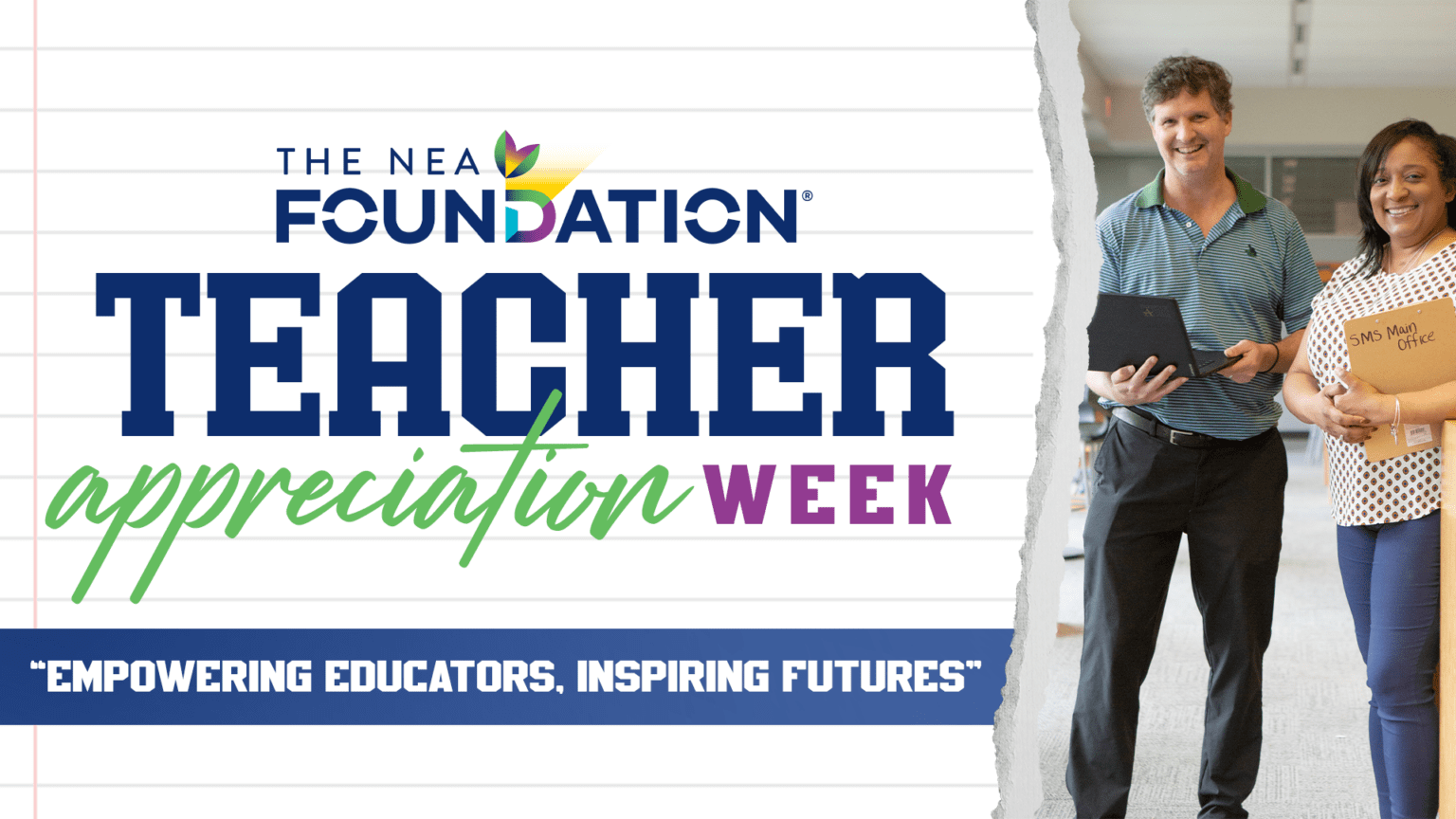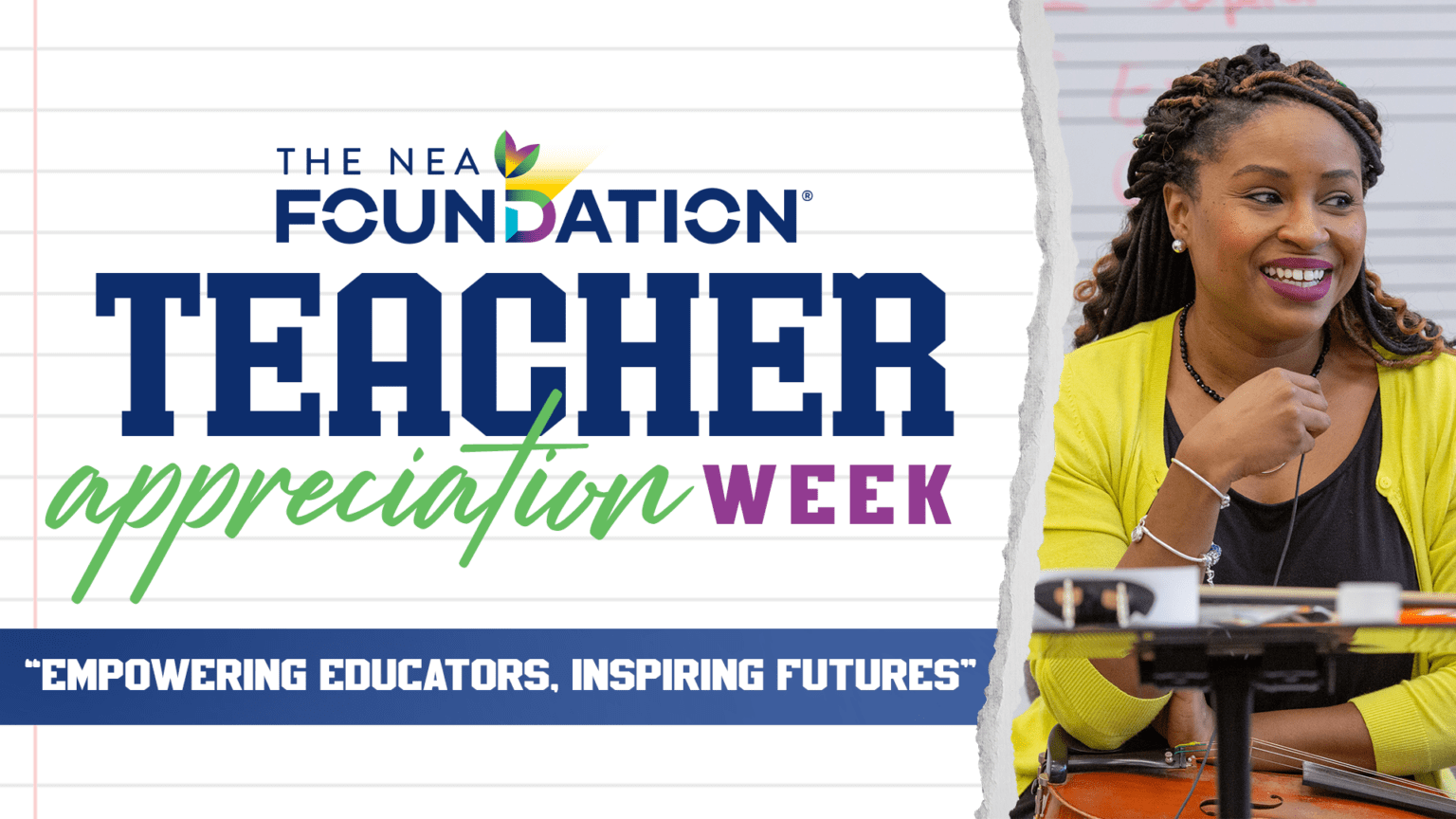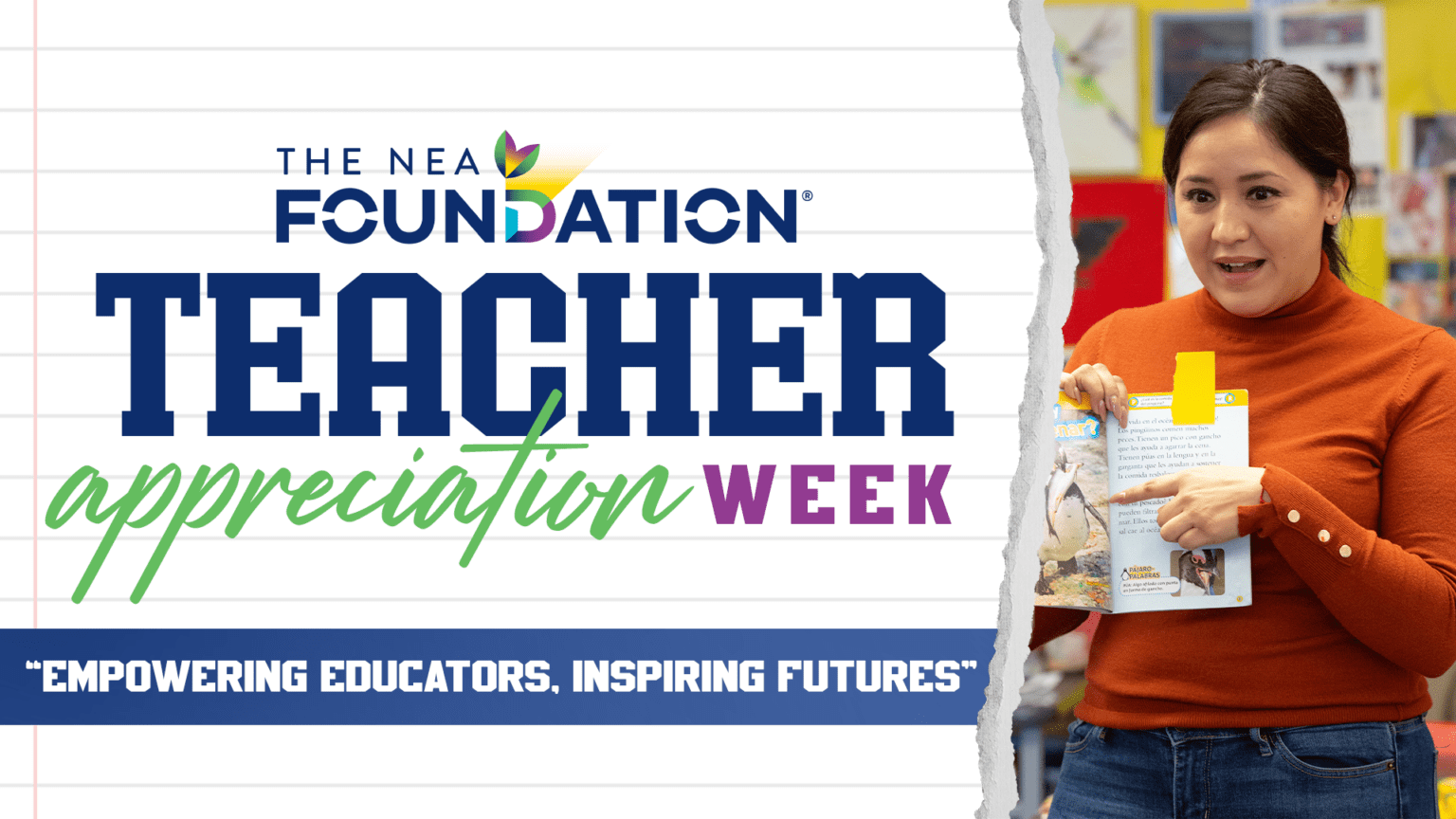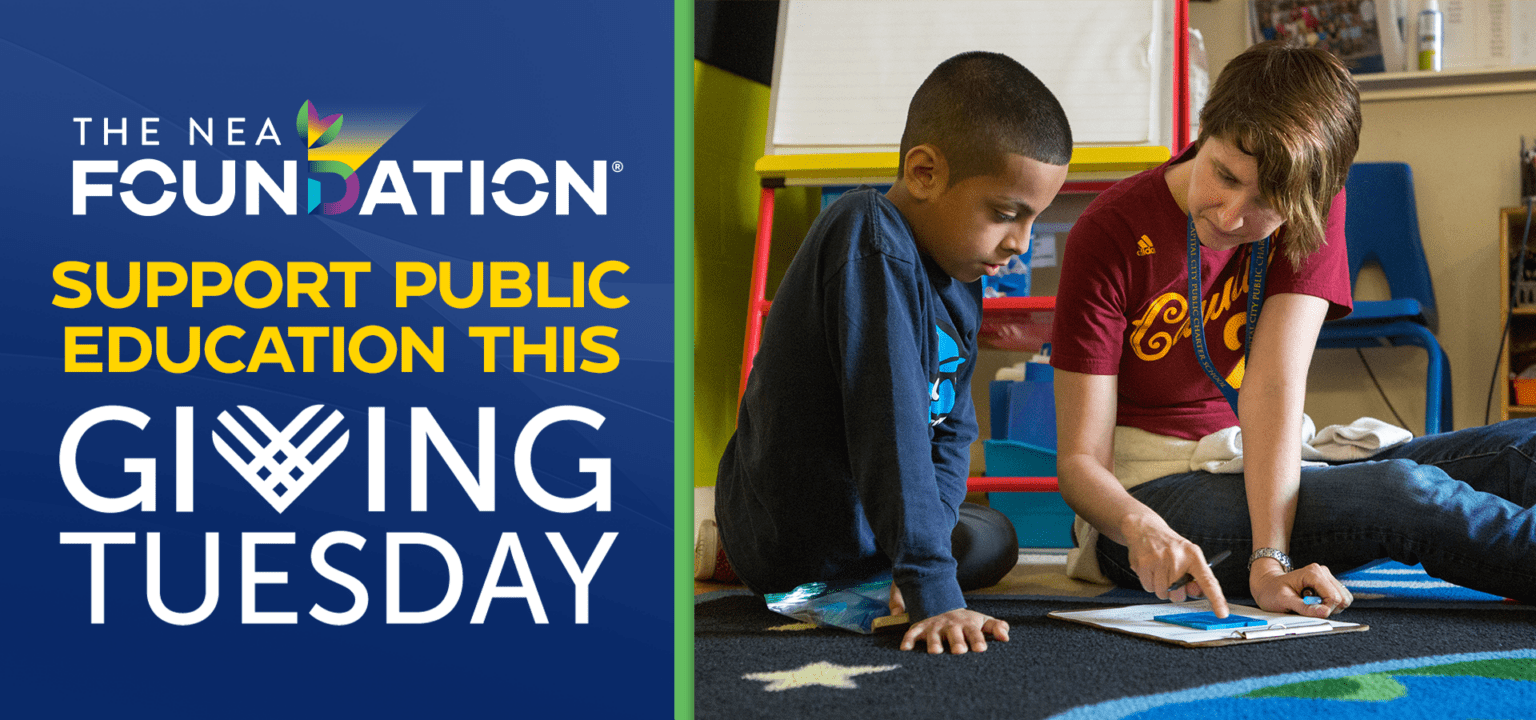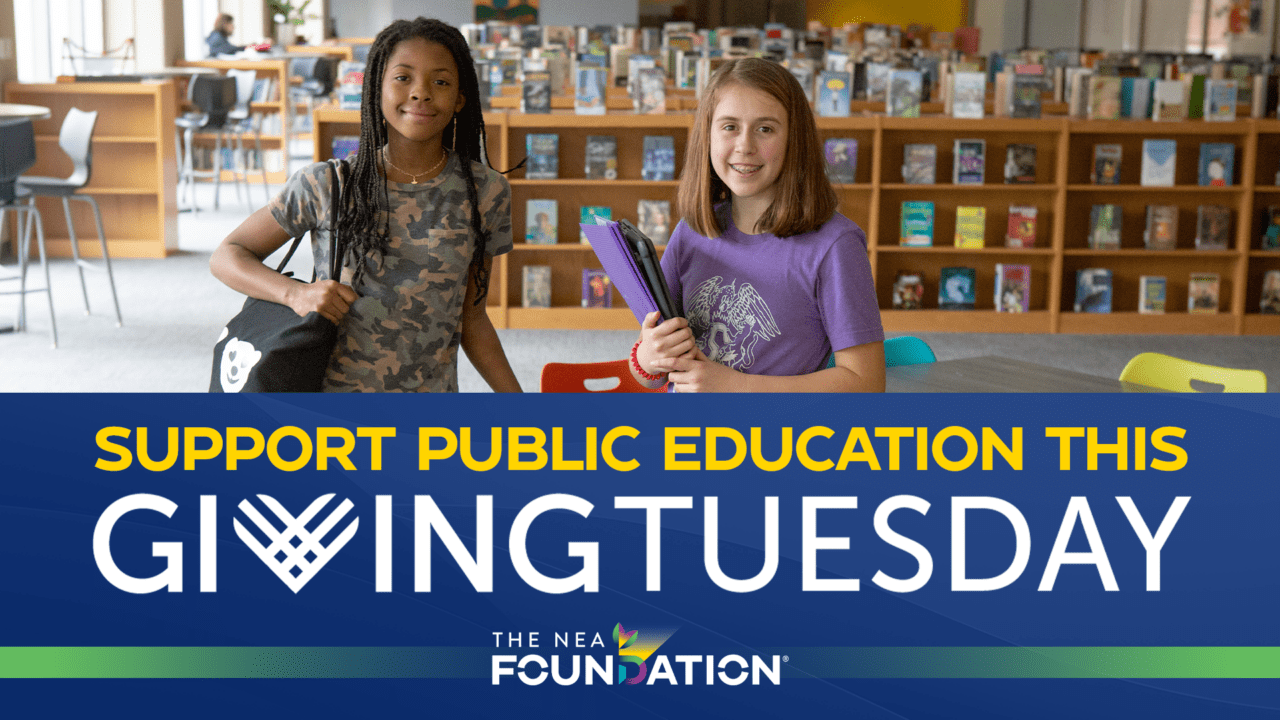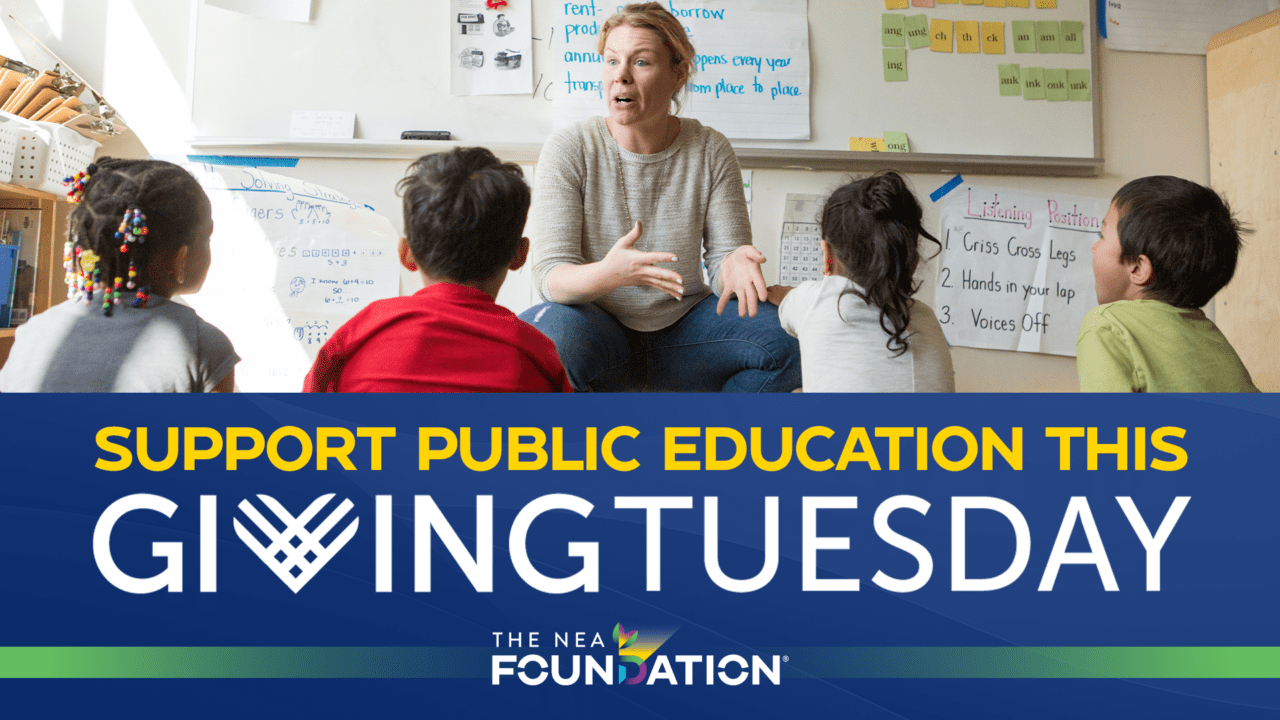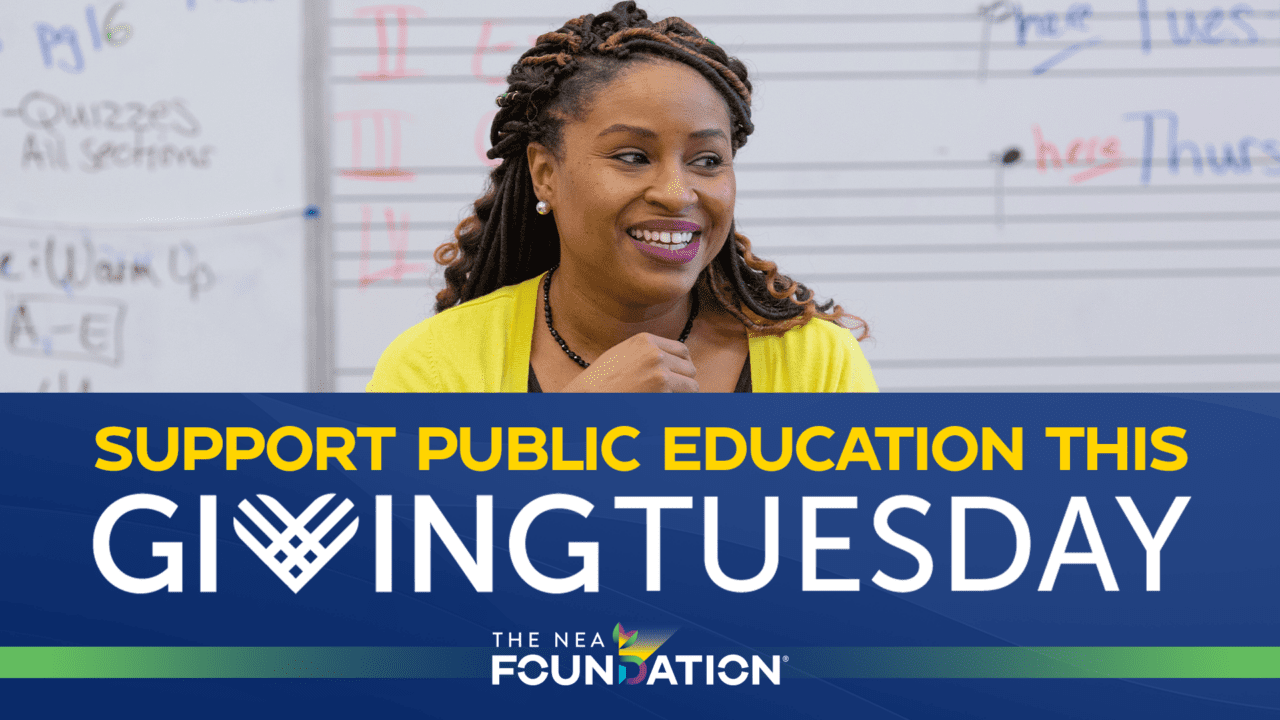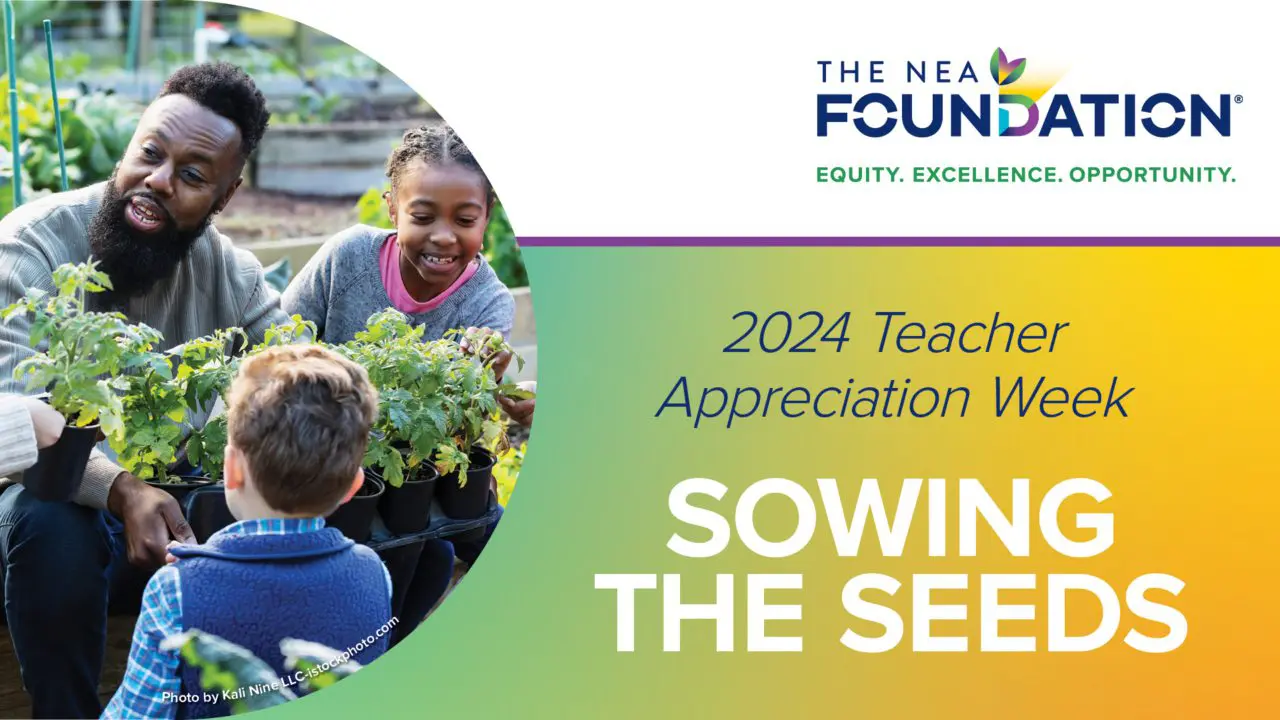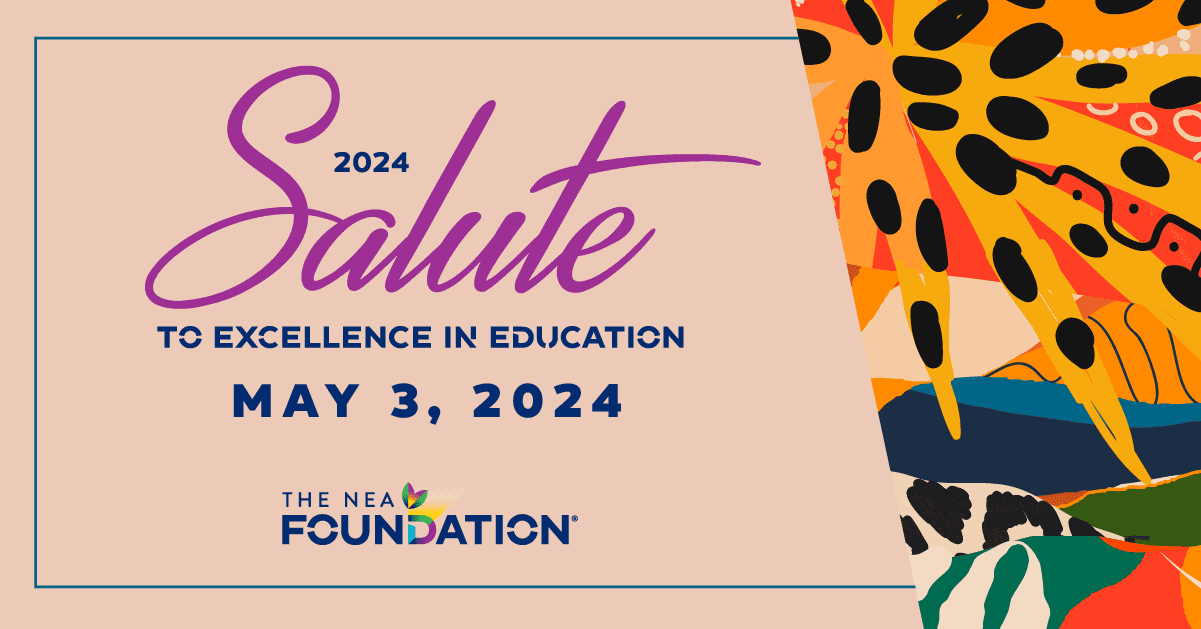
Sabrina Conner is an intervention specialist at Strongsville Middle School in Strongsville, Ohio. Sabrina is passionate about her role in building happy lives for individuals with autism. Away from school, you will find her enjoying the outdoors, hiking, and traveling. Her NEA Foundation Student Achievement grant project includes a tower garden system to help her students with disabilities learn vocational skills, healthy eating habits, and life science with a tower garden system.
We think this is a fantastic idea, so we asked Sabrina to share a little more about her project.
Tell us a little about your project.
My project uses a tower garden system to teach healthy living and vocational skills to students with moderate to intensive disabilities. A tower garden pumps water through a central base and filters the water to 10 to 20 different vegetables and herbs.

My students were responsible for building the tower garden, choosing and planting the vegetables and herbs, and maintaining the system. They prune the plants, check the water level, fill the tank, and harvest the vegetables and herbs. I asked my students to try the different vegetables and herbs, to replace their daily snack with something grown, and to incorporate the plants into a weekly recipe.
How does this innovative education program help your students?
This project teaches my students vocational skills, healthy independent living, and life science. They’ve learned how to start and maintain a garden, how to install a water pump, and how to incorporate vegetables and herbs in their cooking. They’ve learned about specific vegetables and herbs, how to cut and cook vegetables and herbs, and how to grow a garden at home. They’ve applied lessons on photosynthesis.
It is my professional goal to provide my students extended learning opportunities to build skills to help them obtain a job in the future and live independently. I want my students to have a happy life in the future, and I believe part of that includes being able to have a job, make your own money, live outside of your parents’ house, and make your own decisions. This project will help my students obtain that life.
What do your students say about the project?
At first, my students were very confused. Most of my students have autism and very rigid diets. Some had never tried vegetables or certain herbs. Many had never thought about the growing process – they only knew that vegetables came from the store.

I provided lots of lessons on tasting a certain recipe, such as a sauce, and trying to identify what herbs or vegetables you can taste. I ask my students to collect these vegetables and herbs from the tower garden and taste them raw. They connected the flavors from the recipe to the plant they had grown.
A lot of my students like to work for a snack or a treat – typically pretzels or chocolate. I began encouraging my students to snack on some of the vegetables and herbs instead. One student begin snacking daily on the basil grown on our tower garden. Many others would choose sliced cucumbers with dressing for a snack instead of those pretzels or chocolate. Every week, several of my students choose a recipe, make a list of the ingredients, and cook the meal. The students started incorporating the herbs and vegetables grown into their recipes.
I often catch my students smelling the plants and trimming off dead leaves or overgrowth independently and unprompted. I hear my students incorporating the tower garden vocabulary into conversations. My students have gained so much experiential learning from the tower garden. They understand the knowledge they have gained. These students feel proud when other students comment on how cool the tower garden is and how awesome it is that they get to do something hands-on and meaningful.
What inspires you most about your work?
My students inspire me every day. Many underestimate the skills my students can achieve. They see the disability, not the student. However, I see the student first. I see the strengths.
Data shows that students with low-incidence disabilities rarely obtain jobs. Most never move out of their parents’ homes. Personally, I saw that my students typically ate unhealthy food. I knew that a better life was possible, and I wanted to give them that opportunity.
Looking for a high-impact grant for your classroom? Find more information about how to apply for grant resources. The next deadline to apply for an NEA Foundation education grant is June 1, 2017. Learn about other grant projects we’ve funded in our Grantee Archive.

